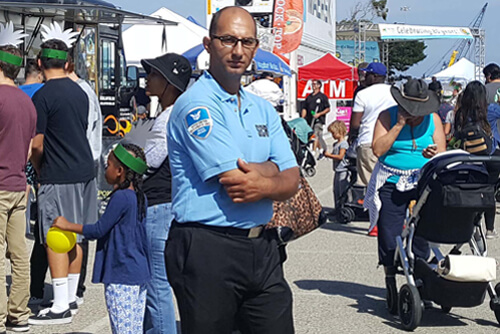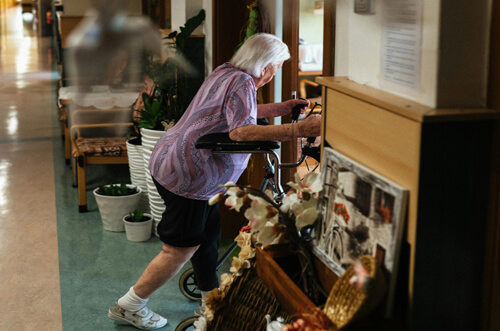
Security Guard Duties
Security guard duties differ from those of a police officer. While law enforcement’s primary responsibility is to take action when a crime or accident occurs, security guards are trained to take a preventative approach. Security guards are skilled to spot potentially improper behavior and either defuse the situation or report it to police. Here’s how they put their prevention skills to work.
Be Seen. We’ve all been at locations where security guards are prominently positioned, monitoring activity at business or event entrances, near ATMs, at auto dealers, schools and malls. Just knowing that a trained guard is onsite looking for potential problems is often enough to keep criminals away.
Respond When An Issue Arises. Security guards are trained to respond to a variety of scenarios—everything from a heated argument to a natural disaster. Their job is to control a situation as quickly as possible and call authorities if needed.
Crowd Control. Maintaining order during an event is another security guard duty. Guards can check-in invited guests (and keep out event crashers), conduct security searches at public event entry points, keep visitors from entering certain site locations, look for and remove misbehaving patrons and make sure all leave the premises once an event is over.
Act As Security Conduit. Whether at a retail business, office building, event, warehouse or shopping center, a security guard is the go-to person if a security issue arises. It’s the security officer’s responsibility to take action or alert authorities.
Enforce Rules/Detain Individuals. A security guard has the right to enforce rules on private property (i.e., no smoking, no loitering). Those who don’t follow the rules can be asked to leave the location. While security guards cannot formally arrest someone, they can detain an individual if the security guard has seen a crime committed or attempted by the suspect. They can restrain the individual until law enforcement arrives.
There are numerous other security guard duties as well including securing perimeters, escorting shoppers or employees to their vehicles, ensuring, gates, doors and windows are secured and making sure there are no safety hazards on the premises. Duties vary depending on the needs of the client—but all start with prevention.






Leave a Comment